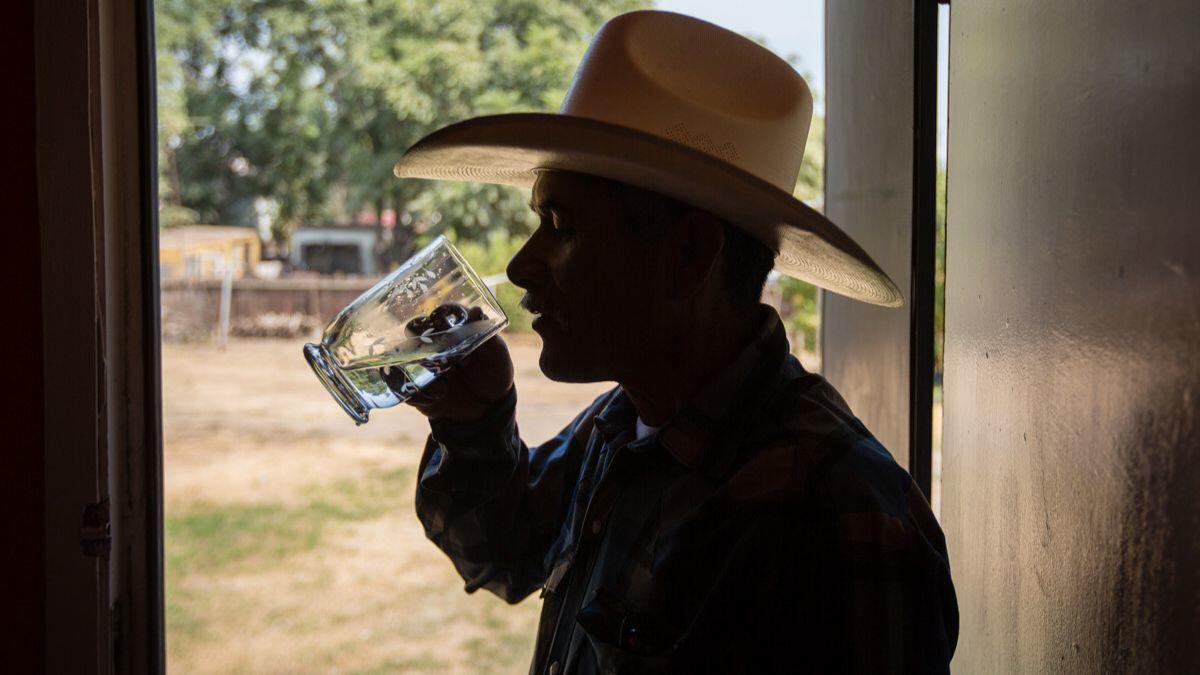Editorial: Don’t panic, but California has yet another water problem

- Share via
First, don’t panic.
It’s true that a report published late last month in the journal Environmental Health found a link between California tap water and cancer. The study noted high levels of arsenic, plus numerous other contaminants that may be more toxic in combination than they are separately. According to the report, the tainted water could cause more than 200 cases of cancer a year.
The problem is very serious — but not necessarily statewide. The study didn’t name the most troubled municipal water systems, but supplies that serve relatively small numbers of people are thought to pose the biggest risks. Some news accounts made it sound like the state’s entire water supply is carcinogenic. That’s not what the report shows — although, to be clear, it also doesn’t show the opposite. State officials are examining the results.
But even if most California tap water is OK, that’s small comfort for the people in the problem areas. If turning on the faucet causes cancer in hundreds more people each year, and many thousands over lifetimes of drinking, washing and showering, it’s obviously a real problem that requires a concerted response.
Enter the Fray: First takes on the news of the minute »
Switching to bottled water is no real solution. Government water-quality regulations do not apply to the stuff in plastic containers on store shelves, and besides, some bottled water companies get their supplies straight from the tap, or at least from the same sources that supply water to home pipes.
For years, industrial and agricultural interests in California negotiated with water agencies and lawmakers over the best way to apportion responsibility for cleaning up contaminated water. It wasn’t easy, in part because some of the most serious problems (arsenic, for example) are largely natural.
But many of the parties reached a tentative accord two years ago, which would impose fees on dairies, fertilizer sellers and most residential water customers (who would pay about 95 cents more per month). It’s a good solution. Former Gov. Jerry Brown supported it but couldn’t persuade the Legislature to approve it. Gov. Gavin Newsom is a strong supporter but is still dealing with opposition from water agencies. The Environmental Health report strengthens his case.
Still, the so-called water tax would provide enough funding chiefly for those water systems with more pollutants than government standards allow. The Environmental Health study suggests that even “safe” contaminant levels can increase the incidence of cancer over time. There’s still no reason to panic — but plenty of reason to get more serious about improving the quality of the state’s water supply.
Follow the Opinion section on Twitter @latimesopinion and Facebook
More to Read
A cure for the common opinion
Get thought-provoking perspectives with our weekly newsletter.
You may occasionally receive promotional content from the Los Angeles Times.






